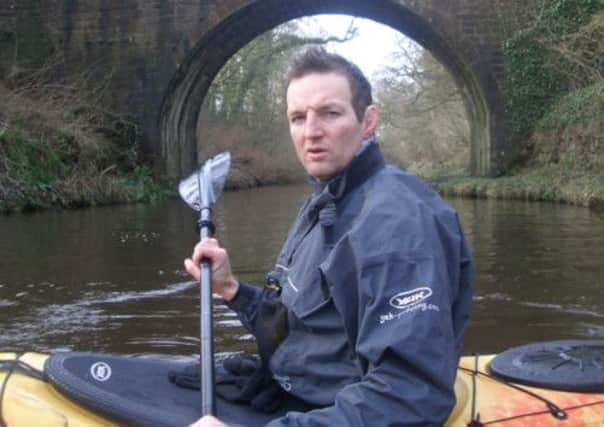Roger Cox: Inventive adventuring across Scotland


Take, for example, the challenge of traversing Scotland under your own power, whether from south to north or from east to west. In the last few years there have been countless variations on this theme, each one involving even more lateral thinking than the last. In 2010, you may remember, the youth worker and environmentalist Peter Wright MBE brought out a book called Ribbon of Wildness, in which he described a 1,200km (745 mile) trek from Peel Fell on the English border to Duncansby Head near John O’ Groats. His chosen route took him along what he called “The Watershed of Scotland” – a notional spine of land that divides the country neatly in two, with all the rain falling to the west flowing into the Atlantic and all the rain falling to the east eventually finding its way into the North Sea. Or how about Sean Fallon and Darren Burns – the two Edinburgh PE teachers who recently celebrated their 40th birthdays by completing a project called “Gridlocked Scotland”? They made a similar south to north journey to Wright’s, only this time travelling by bike, foot, kayak (and – finally – climbing rope) along the 93rd easting, from Mersehead Nature Reserve on the Solway Firth to Red Point in Caithness, never deviating more than one kilometre from their chosen grid line.
Inevitably, perhaps, the popularity of Scotland-crossing has led to it becoming an organised sport of sorts: the annual Coast to Coast Rat Race, taking place on 14 and 15 September this year, sees participants undertaking a gruelling, 100-mile bike-hike-kayak triathlon from Nairn to Glencoe. The tagline for the event is “Can you cross Scotland in a weekend?” but it turns out some serious adventure racers can do it in a lot less – last year’s fastest finishers managed it in under nine hours.
Advertisement
Hide AdYou could be forgiven for thinking that all the conceivable ways of traversing the country must have been exhausted by now – but you’d be wrong.
Only the other day, I was sent a link to a trailer for an upcoming film made by three adventurous souls from the Canary Islands, who crossed Scotland from west to east back in May using packrafts – essentially little rubber canoes with tiny collapsible sails at the front, which you can deflate and pack away into your rucksack. Ivan Dominguez, Jose Carmelo Peñate and Eduardo Munoz started out at Mallaig and spent six days travelling to Perth via Loch Morar, Loch Rannoch, Loch Tummel and the River Tay. Their trip involved hiking through mountain ranges and forests, not to mention ping-ponging their little rubber boats down some hairy-looking rapids; and I love the idea that, for months or maybe even years, the three of them must have been busy planning their big adventure, poring over maps and weather charts in some sunny terraza in Tenerife, trying to imagine what it must feel like to hike through a drizzly peat bog under leaden skies while being eaten alive by midges. How alien our mountains and rivers must have looked – and how cold the water in the lakes and rivers must have felt. If only out of a Burnsian desire “to see oursels as ithers see us,” I can’t wait to watch the finished film.
Meanwhile, another nomination for our “most ripped off explorer of all time award” comes from reader Susan Forde, who proposes the scientist William Speirs Bruce. By rights, Bruce should have been involved in Robert Falcon Scott’s Discovery Expedition of 1901-04, but delays over his appointment and clashes with the Royal Geographical Society in London led him to organise his own Deep South gig: the Scottish National Antarctic Expedition. This successful voyage resulted in the publication of five groundbreaking volumes concerning physics, botany and zoology and has even been credited with laying the foundation for modern climate change studies, yet although there have been recent attempts to revive his reputation, he was more-or-less forgotten after his death in 1921 – and denied a Polar Medal.
Griffith Pugh, John Rae, John Hanning Speke, Chippy McNish, and now William Speirs Bruce – perhaps they should get a joint statue somewhere.